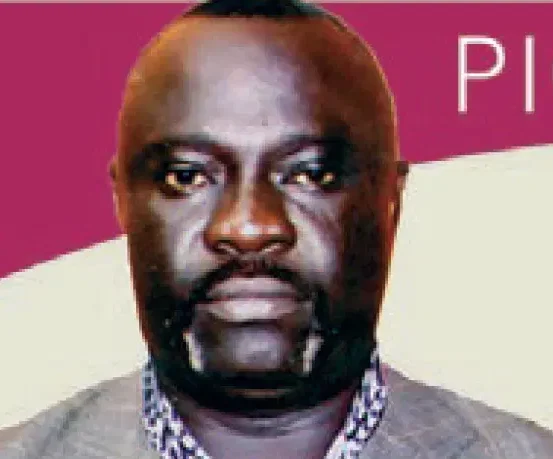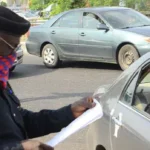Ordinarily, a cul-de-sac means a street or passage that is closed at one end. According to vocabulary.com, the expression, cul-de-sac comes from the French language, where it originally meant “bottom of a sack”. It was first used in English in anatomy, and used to refer to a vessel, tube, or sac open at only one end. The term has been used for dead-end streets since 1800 in English, and since the 14th century in French.
So with that in mind, it is clear to us all that the economy has effectively been driven into a cul-de-sac by the twin policies of petrol subsidy removal and naira flotation. It also has become obvious that the government, headed by President Bola Tinubu massively underestimated the impact of subsidy on the petrol-driven economy.
In fact, I do not know if our political leaders realise that we are a petro-state. Subsidy removal triggered astronomic rises in prices of goods and services, so much that one meal a day, of whatever quality, is becoming more and more elusive to the average Nigerian. Poverty has deepened, the middle class wiped out as the gap continues to widen between the poor and rich.
From N187 per litre on May 28, 2023, petrol price per litre rose to N568, and now, N855. Despite that, queues still persist. Hopes that locally-refined petrol through the Dangote Refinery would make a difference have been dashed as more facts emerged about the economics of crude refining, peculiar only to Nigeria. As this week ends today, we have now been told by NNPCL that petrol from Dangote Refinery will be sold at N950 per litre. If we have to pay more for petrol, it means we have to pay more as transport fares, more for food, more for drugs, and generally, more for every other thing.
Since that is not the way to renew hope as the president promised in his Renewed Hope Agenda, I venture to advise the president on what else he can do to save the economy, his administration, and by extension, all of Nigerians from certain economic perdition.
I suggest to the president that he should go back to subsidy, but not the way it was done before. The real way to subsidise fuel energy is for the president to take a bold political decision about the price of crude set aside for local consumption. Right now, the prevailing price of Bonny Light crude at the International Petroleum Exchange is US$78.62. At current exchange rate of N1,645 to the US Dollar, that translates to N129,329.9. It will not have any impact on price if crude is sold to Dangote in Naira when he is paying the Naira equvalent of the global price. The only difference is that he will not be running from pillar to post to generate the money in hard currency.
It is known that 450,000 barrels of crude are allocated for domestic use, which, before they went into oblivion, our refineries were refining and distributing for our use. With the refineries in coma, NNPC, later NNPCL, started trading the crude and using the proceeds to import refined products. The fall in value of the Naira means we pay more in naira terms for the product when it gets here. If we continue along that line, and with flotation of the naira in place, someday, we will get to N2,000 per litre or more as price of petrol. I can only imagine what that will cost us as a nation of peoples; certainly, we will not have any economy left to speak of.
As a result, at this point, I implore all the fat cats feeding on our misery to rein in their greed. To save Nigerians and reflate the economy, the president is hereby advised to sell crude to Dangote Refinery at half the international price in Naira. That means the Federal Government should sell crude to DRL at N64,664.95 per barrel. From one barrel of crude, 159 litres of petrol can be obtained.
From 450,000 barrels, we will get 71,550,000 litres of petrol. That is more than we need, daily. There will still be ample revenue to be generated from sale of other refined products such as diesel fuel, heating oil, jet fuel, petrochemical feedstocks, waxes, lubricating oils, and asphalt. Of course, what we do not know, which is another factor determining price, is the cost of refining.
The last time I remember this issue was in public domain was when the late Bashorun M.K.O. Abiola was campaigning to be president in the 1993 elections. He said on one occasion that NNPC will have to furnish him, as president, with the cost of refining. Since then, no more about it. NNPC/NNPCL has not told anybody what it costs to refine a litre of petrol; neither has Dangote.
But let the President take the suggestion above, sell crude for local use to Dangote at half the international price in Naira, and check the figures to arrive at a price of petrol that Nigerians can afford, which will enable the economy, which, is on its back at the moment, get back on its feet. In other words, let the president and his men put the interest of Nigerians at the fore.
It is the only way the president and his government can get us out of this economic cul-de-sac, and I don’t see what it will cost him, since it’s a political decision. Afterall, heavens did not fall when he bought a new presidential jet for which appropriation was not done, and nothing happened when N25 billion was voted to renovate a house. I wonder how much will be needed to build a new house. TGIF.


